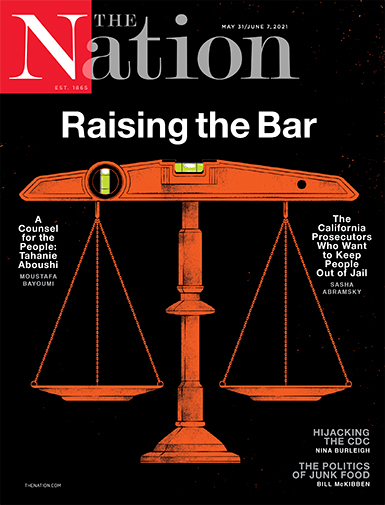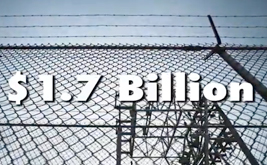
Stop Congress From Handing a Windfall to the Private Prison Industry Stop Congress From Handing a Windfall to the Private Prison Industry
Private prison companies like the Corrections Corporation of America already make millions locking up immigrants.
Nov 8, 2013 / Take Action / NationAction
Censored in Colorado Censored in Colorado
America After 9/11 Since 9/11, the Department of Justice has prosecuted more than 500 terrorism cases, yet there remains scant public understanding of what these federal cases have actually looked like and the impact they have had on communities and families. Published by The Nation in collaboration with Educators for Civil Liberties, the America After 9/11 series features contributions from scholars, researchers and advocates to provide a systematic look at the patterns of civil rights abuses in the United States’ domestic “war on terror.” * * * This fall, The Nation introduced a new series of articles on “America After 9/11,” the first of which described the pattern of rights abuses in federal terrorism prosecutions and conditions at the nation’s only federal supermax prison, ADX, in Florence, Colorado. The piece described the case of Fahad Hashmi, a former student of mine at Brooklyn College. Fahad had been charged with providing material support for terrorism after he let a friend use his cellphone and stay in his London apartment with luggage containing raincoats, ponchos and socks that the friend later took to an Al Qaeda leader in Pakistan. After three years in pre-trial solitary confinement at the Metropolitan Correctional Center in Manhattan, Fahad pleaded guilty and was transferred to ADX to serve his fifteen-year sentence. Fahad has been at ADX for more than three years. He has subscriptions to The Nation and The New York Times, paid for by his family. But the prison refused to allow him to have the Nation issue that contained my piece. Last year, a piece in the Times titled “Fighting a Drawn-Out Battle Against Solitary Confinement” was also banned. Opened in 1994 as a behavioral management unit, ADX officially houses the most dangerous prisoners in the federal system. Since 9/11, however, any sort of terrorism conviction can land a person there. Once incarcerated at ADX, there is little effective recourse for challenge. Today, ADX disproportionately houses Muslims. Please support our journalism. Get a digital subscription for just $9.50! In “general population,” prisoners spend twenty-three hours a day in cells that measure eighty-seven square feet. Prisoners eat meals alone, within arm’s reach of their toilet. ADX offers TV “classes,” which count toward good behavior. One is “The Magic of Everyday Communication.” The perverse cruelty of teaching face-to-face communication to people enduring years of solitary confinement boggles the mind. ADX walls itself off from public scrutiny. It has allowed only one visit by human rights groups in twenty years, denied visitation requests from two UN special rapporteurs on torture and turned down nearly all press requests. (One monitored media event occurred in 2007.) With little access for journalists or human rights groups, ADX has a formidable wall of silence around it. The banning of reading material that dares to describe the nature of Fahad’s confinement is a reminder of the repressive conditions that prisoners on US soil continue to face. More in the ‘America After 9/11’ Series: How Tarek Mehanna Went to Prison for a Thought Crime As the government embraces a “counter-radicalization” approach to counterterrorism, prosecutors are turning radical beliefs into criminal acts. by Amna Akbar Guantánamo in New York City Americans remain mostly blind to the abusive treatment of terror suspects on US soil. by Jeanne Theoharis Where’s the Outrage When the FBI Targets Muslims? The FBI employs the same repressive tactics as the NYPD in its broad surveillance of Muslim communities. Why does the FBI get a pass? by Diala Shamas How Mohammed Warsame Became an Accidental ‘Terrorist’ In the wake of 9/11, prosecutors have embraced “special administrative measures” to keep terrorism suspects guilty until proven otherwise. by David Thomas
Nov 6, 2013 / Editorial / Jeanne Theoharis
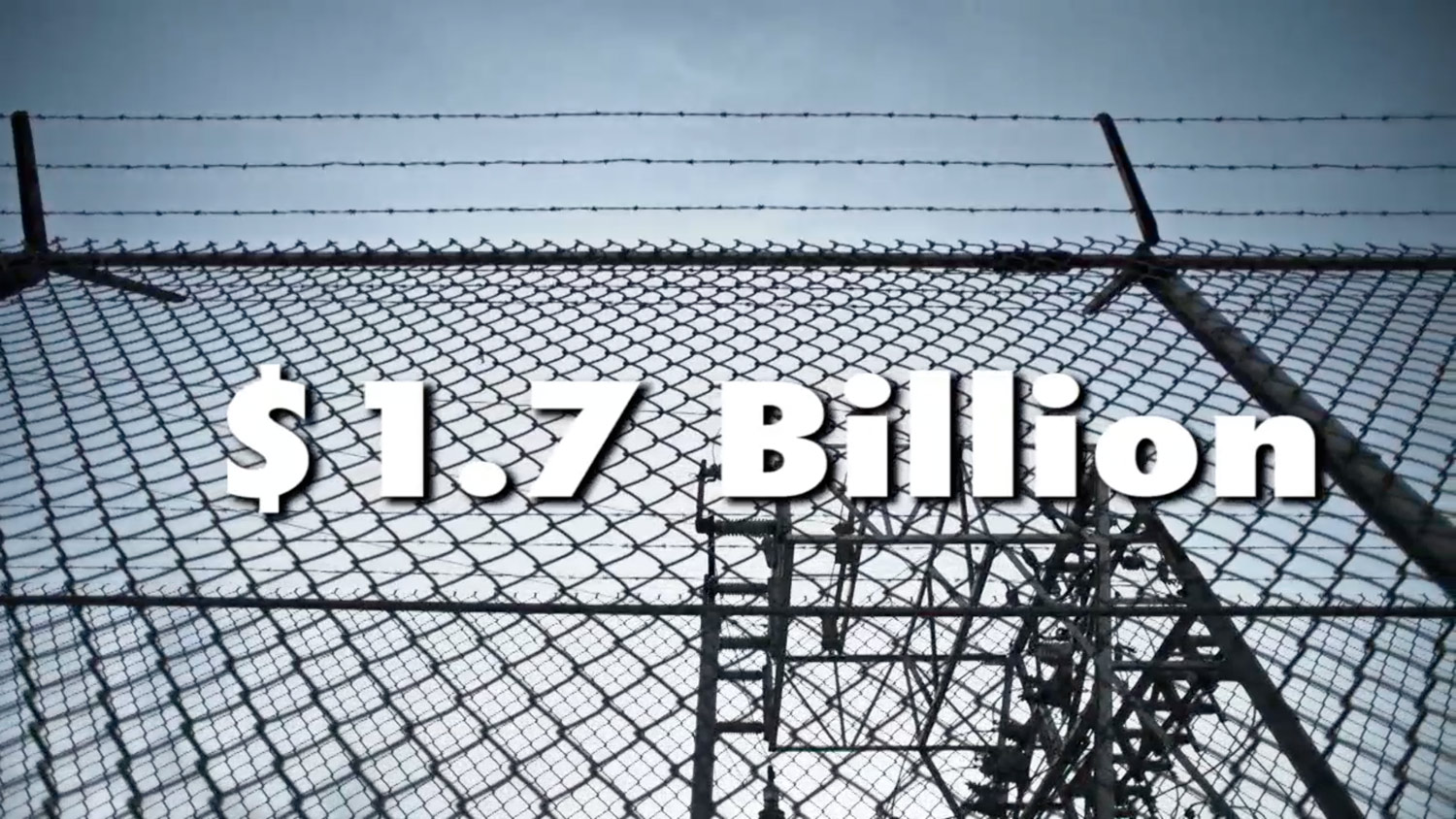
VIDEO: Why This Company Wants You in Prison VIDEO: Why This Company Wants You in Prison
It has something to do with the $1.7 billion they made off the privatized incarceration industry just last year.
Nov 5, 2013 / Jesse Lava and Sarah Solon
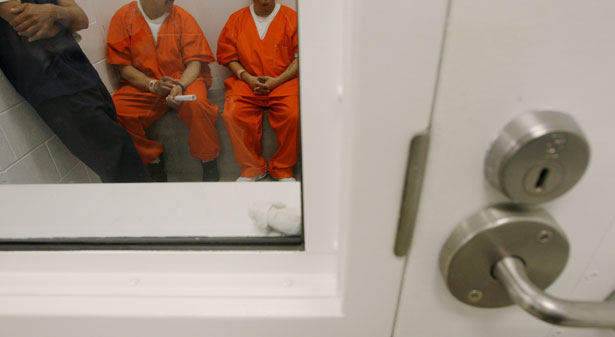
Criminalizing Immigrants Shouldn’t Be a Business Opportunity Criminalizing Immigrants Shouldn’t Be a Business Opportunity
But the private prison company GEO Group is making huge profits locking up immigrants who are often guilty only of the crime of being undocumented.
Oct 23, 2013 / Jesse Lava and Sarah Solon

Should It Cost Less to Get Out of Jail if You’re Rich? Should It Cost Less to Get Out of Jail if You’re Rich?
Thanks to the $14 billion commercial bail industry, we have two criminal justice systems: one for the rich and one for the rest of us.
Oct 15, 2013 / Take Action / NationAction
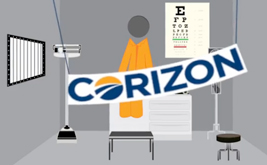
Meet the Medical Company Making $1.4 Billion a Year Off Sick Prisoners Meet the Medical Company Making $1.4 Billion a Year Off Sick Prisoners
In states that use Corizon to provide healthcare in their prisons, medical neglect and abuse run rampant.
Oct 8, 2013 / Take Action / NationAction
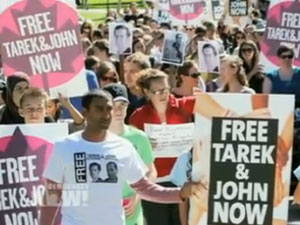
Canadians Remain Imprisoned in Egypt Without Charge Canadians Remain Imprisoned in Egypt Without Charge
Hundreds of witnesses to massacre by Egyptian security forces face extended detention.
Oct 2, 2013 / Nation in the News / Press Room
Noted Noted
How corporations seek to make big bucks off mass incarceration.
Oct 2, 2013 / Editorial / Liliana Segura

Tell the FCC: Prison Phone Companies Shouldn’t Profit Off Indigent Families Tell the FCC: Prison Phone Companies Shouldn’t Profit Off Indigent Families
Prison phone companies like Global Tel* Link get away with charging prisoners exorbitant rates just to keep in touch with their families. Tell the Federal Communications Commission...
Oct 1, 2013 / Take Action / NationAction
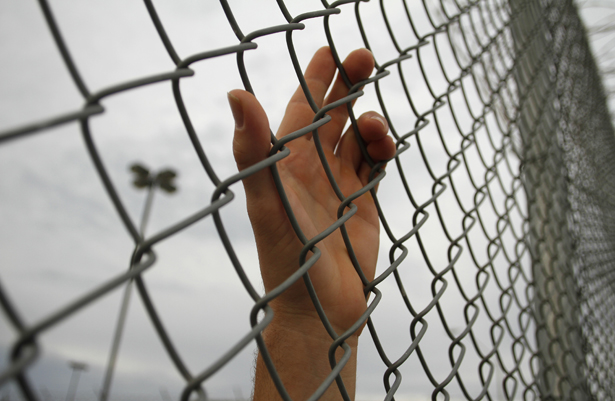
With 2.3 Million People Incarcerated in the US, Prisons Are Big Business With 2.3 Million People Incarcerated in the US, Prisons Are Big Business
Meet the corporations who are profiting off our prison system.
Oct 1, 2013 / Liliana Segura
